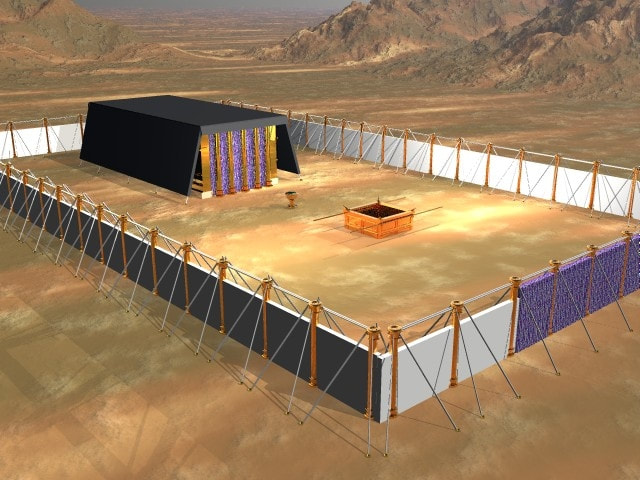|
Throughout the year, the Southern New England Conference of the United Church of Christ reproduces the Daily Lectionary for use by churches. These are the suggested readings for April 4th: Exodus 40:1-15; Psalm 20; and Hebrews 10:19-25. I would encourage you to read these short selections as part of your Lenten practice.
Today’s Exodus passage provides details that give us a glimpse of how the sacred was conceived in ancient Israel. Sacred was so “other” that it needed to be kept separated from the mundane. If the two came into an uncontrolled connection, the reaction would be disastrous. I enjoy when scientists share their work in a layperson’s vocabulary, and I especially enjoy physics. The scientists who study the earliest moments of universal creation amaze me with how well they understand the process that brought everything into existence after the Big Bang some 13.8 billion years ago. One of their quandaries has been why creation didn’t simply annihilate itself. Matter and anti-matter (yeah, the stuff from Star Trek) completely destroy each other when they come into contact so if both were produced at the Big Bang how then am I hear typing this Lenten Blog. In response, the scientists posited that particles of matter slightly outnumbered anti-matter particles, and then they went looking for the evidence. By slightly I mean there was enough matter left over to create everything. But that image of matter and anti-matter being so fundamentally different that they would annihilate each other if they came into contact is like the idea of the sacred and profane in Exodus. The divine presence in the world needs to be kept at a safe distance from the worldly to protect the worldly. It is for this reason that the Ark of the Covenant is kept shielded in the Tabernacle (which is also called the Tent of Meeting but originally the Tent of Meeting was a prophetic enclave separate and separated from the cultic Tabernacle). It is for this reason that Aaron and his descendants are the only ones permitted to attend to the divine presence, there to be assisted by the tribe of Levi. A great deal of attention went into the maintenance of protecting not the sacred, but everything else from the sacred. This is where the phrase “fear of the Lord” emerges. It was a frightful thing to come into the presence of Yahweh. It may sound surprising, but there is only one New Testament priest mentioned in Scripture, and it is Jesus as expressed in the Epistle to the Hebrews. There is mention of Jewish Temple priests converting to faith in Jesus (Acts 6:7), but they were Temple priests not Christian priests. Again, the only New Testament priest mentioned in Scripture is Jesus in the Epistle to the Hebrews. Jesus’ priesthood astonished the earliest Christians because it broke down the separation between sacred and profane. The environs that were once limited to the priestly caste and with deliberate caution are now open to everyone, Jew and Greek, male and female, free and slave, based on but one belief: “[W]e have confidence to enter the sanctuary by the blood of Jesus.” Jesus on the cross is both priest and sacrifice. His death on the cross proves such a great love and connection between God and creation that forevermore Christians can celebrate the closeness of God not as “fear of the Lord,” but as the love of Christ. This in turn leads the author of Hebrews to write: “And let us consider how to provoke one another to love and good deeds, not neglecting to meet together, as is the habit of some, but encouraging one another …” In other words, Jesus loves us enough to accept the cross so we should be inspired to live lives of Christian love. The community of the church is called upon to “provoke one another” in their worship gatherings to love and also to do “good deeds.” The love of Christ exemplified perfectly on the cross is amplified by the gathering of the church and is expressed in a Christian’s love and good deeds. This “encouraging one another” becomes the new reaction of the meeting of sacred and secular, not annihilation, but rather the catalyst to truly living as people who believe and act accordingly in a loving, crucified Saviour. If you’d like, here is the link to the Southern New England Conference’s daily reading schedule: www.sneucc.org/lectionary.
0 Comments
Leave a Reply. |
NewsFaith, love and chitchat. Categories
All
Archives
June 2024
Follow
|
|
SERVICE TIMES
Sunday 9:30-10:30am Children Sunday School 9:30-10:30am Nursery care available during worship DONATE Make a single or recurring contribution by clicking here |
FOLLOW
|

 RSS Feed
RSS Feed
